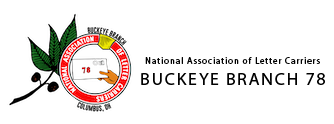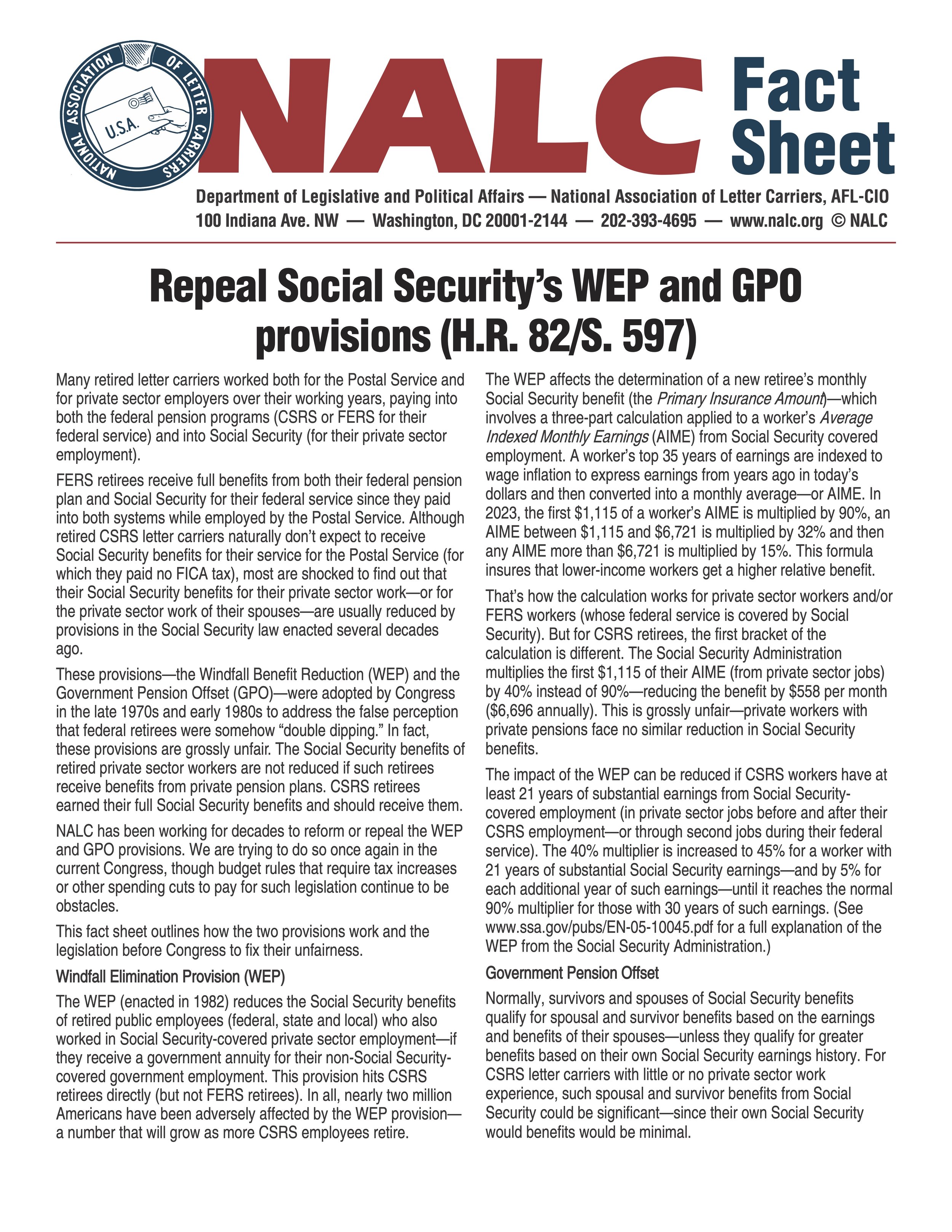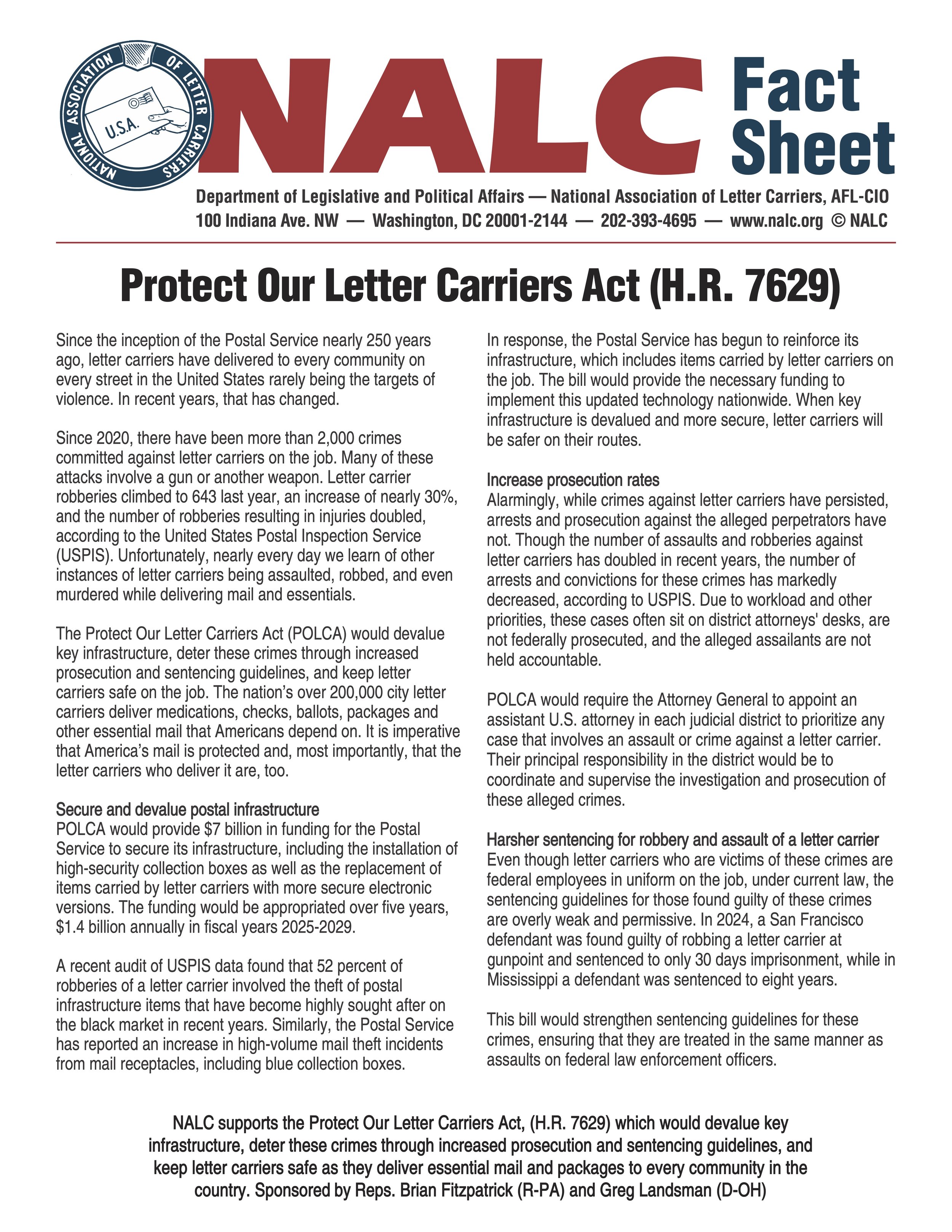
Legislative Issues
Contribute to the Letter Carrier Political Fund (LCPF)
Family Member Contribution to the Letter Carrier Political Fund
Annuity Contribution
Contribute with an Electronic Fund Transfer (EFT)
Contribute bi-weekly using PostalEASE
CURRENT LEGISLATIVE ISSUES
Why give to the Letter Carrier Political Fund (LCPF)?
HATCH ACT DISCLAIMER
The Hatch Act, a federal law passed in 1939, limits certain political activities of federal employees, as well as some state, D.C., and local government employees who work in connection with federally funded programs. The law’s purposes are to ensure that federal programs are administered in a nonpartisan fashion, to protect federal employees from political coercion in the workplace, and to ensure that federal employees are advanced based on merit and not based on political affiliation.
LETTER CARRIER POLITICAL FUND DISCLAIMER
By making a contribution to the Letter Carrier Political Fund, you are doing so voluntarily with the understanding that your contribution is not a condition of membership in the National Association of Letter Carriers or of employment by the Postal Service, nor is it part of union dues. You have a right to refuse to contribute without any reprisal. Any guideline amounts are merely suggestions, and you may contribute more or less than the guidelines suggest and the union will not favor or disadvantage you by reason of the amount of your contribution or your decision not to contribute. The Letter Carrier Political Fund will use the money it receives to contribute to candidates for federal office and undertake other political spending as permitted by law. Your selection shall remain in full force and effect until cancelled. Contributions to the Letter Carrier Political Fund are not deductible for federal income tax purposes. Federal law prohibits the Letter Carrier Political Fund from soliciting contributions from individuals who are not NALC members, executive and administrative staff or their families. Any contribution received from such an individual will be refunded to that contributor. Federal law requires us to use our best efforts to collect and report the name, mailing address, name of employer and occupation of individuals whose contributions exceed $200 in a calendar year.










